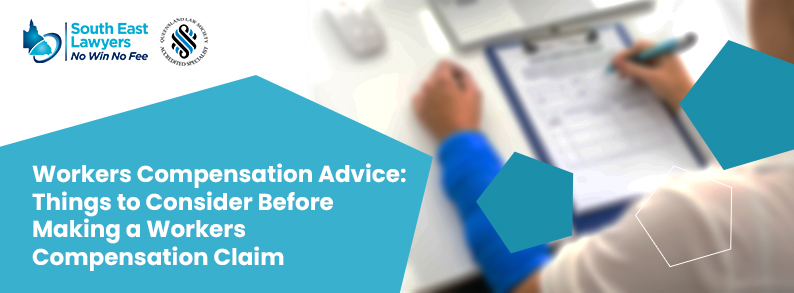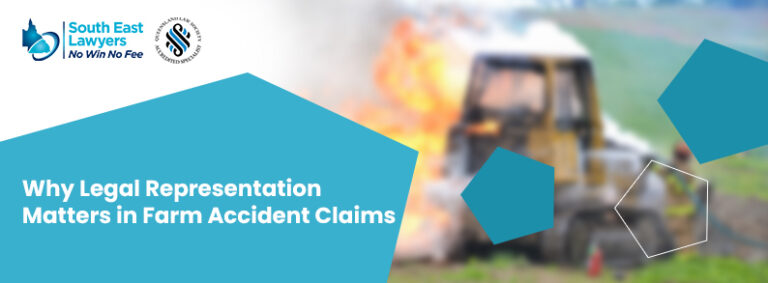Navigating the intricacies of a workers’ compensation claim can be a daunting task.
While many are familiar with the basic process, there are numerous critical but often overlooked aspects that can significantly impact the outcome of a claim. This article aims to shed light on these lesser-known yet vital elements, ensuring that you are thoroughly prepared when filing for workers’ compensation.
From the importance of meticulous documentation to understanding the nuances of claim rejection and the implications for future employment opportunities, we delve into the key areas that deserve your attention. Our focus is not just on the ‘how-to’ but on the ‘what else’ – workers’ compensation advice on the aspects that are not immediately apparent but are crucial for a successful claim.
Our goal is to provide clarity and insight, helping you to navigate the complexities of the workers’ compensation system with a more informed perspective. Armed with this knowledge, you can approach your claim with confidence, knowing that you have considered all the essential factors that could influence the outcome.
Factors to consider before making your workers’ compensation claim
1. The importance of keeping a record of your workplace injury
When it comes to workers’ compensation claims, the adage ‘the devil is in the details’ holds particularly true. Comprehensive documentation of your workplace injury is not just recommended; it’s imperative. The more detailed your records, the stronger your claim stands.
What to Document?
- The Incident Itself: Record the date, time, and location of the injury. Describe the incident in as much detail as possible, including any hazards or conditions that contributed to the event.
- Witnesses: List the names and contact information of anyone who witnessed the accident. Their accounts can provide crucial support for your claim.
- Injuries and Symptoms: Document all injuries and symptoms related to the incident, no matter how minor they seem. This includes immediate injuries and symptoms that develop over time.
- Medical Attention: Keep a detailed record of all medical treatments and diagnoses. This includes doctor’s visits, treatments received, prescribed medications, and any instructions or recommendations from healthcare professionals.
- Work Absences: Record any time missed from work due to the injury. This includes partial days, full days, and any reduced hours or duties.
- Correspondences: Keep copies of all correspondences related to your injury and claim. This includes emails, letters, and notes from conversations with your employer, insurance representatives, and healthcare providers.
Why It Matters
Thorough documentation serves as the backbone of your workers’ compensation claim. It provides a clear and undeniable account of what happened, the impact of the injury, and the steps you’ve taken following the incident. In disputes or when facing claim denials, these details can make a significant difference in proving the legitimacy and extent of your injury.
Starting the documentation process as soon as possible after the incident is key. The fresher the details, the more accurate and helpful they will be. Remember, in workers’ compensation claims, well-documented evidence is your most powerful tool in securing the benefits you are entitled to.
2. Understand your eligibility for compensation
When it comes to workers’ compensation, being aware of its availability and understanding the key eligibility factors is crucial for any employee navigating a potential claim. Workers’ compensation is a form of insurance most employers have to ensure that employees who are injured or fall ill due to their job receive proper medical care and compensation for lost wages.
Whether you’re eligible for workers’ compensation revolves around several fundamental criteria:
- Employment Status: Generally, most employees are covered under their employer’s workers’ compensation insurance. This includes full-time, part-time, and in certain cases, temporary workers. However, independent contractors and volunteers might not be eligible under this scheme.
- Nature of the Injury or Illness: The injury or illness must be directly related to the employee’s job duties or work environment. Whether it’s an accident, a repetitive strain injury, or an illness developed due to work conditions, the key is that it is connected to the course of employment.
Employers play a crucial role in the workers’ compensation system. They are typically required to carry workers’ compensation insurance, which is designed to cover the costs associated with work-related injuries and illnesses. This coverage is not just a safety net for employees; it also benefits employers by limiting their liability in case of workplace accidents and illnesses.
Understanding that workers’ compensation is available and recognising the key eligibility criteria empowers you to take the necessary steps should you ever need to file a claim. Remember, the specifics can vary from state to state, so it’s important to be informed about the regulations in your area. If you’re ever in doubt, don’t hesitate to seek guidance from a workers’ compensation attorney or your human resources department.
3. There are time limits to make workers’ comp claims
When filing a workers’ compensation claim, it’s crucial to be aware of the time limits, which vary depending on your location. These deadlines determine how soon you need to report your injury to your employer and file your claim.
Some key points to remember include:
- Time limits differ by state: Ensure you know the specific deadlines applicable in your area.
- Prompt reporting is essential: Report your injury to your employer as soon as possible to avoid missing the deadline for filing a claim.
- Delayed reporting can jeopardise your claim: Late reporting can lead to denial of benefits.
Being mindful of these time limits is essential for maintaining your eligibility for workers’ compensation benefits.
4. Understand what workers compensation can cover
Workers’ compensation offers various types of benefits, each designed to support injured employees in different ways. Understanding these benefits is crucial for comprehensively navigating your claim and ensuring proper recovery.
Common Types of Benefits:
- Medical Benefits: Covers all medical expenses related to your work injury or illness.
- Disability Benefits: Provides compensation for lost wages, either temporarily or permanently, depending on the severity of your condition.
- Rehabilitation Benefits: Helps you return to work, covering costs for physical therapy and vocational training if necessary.
Being aware of the available benefits is critical. Knowing the full scope of what you can claim ensures you don’t miss out on essential support. This awareness not only helps in maximising your claim but also aids in your recovery process. For example, understanding that rehabilitation benefits can cover vocational training could be vital if you need to change careers due to your injury. Additionally, being informed about your entitlements allows for strategic planning, especially in terms of financial stability and career adjustments post-injury. Ultimately, a thorough understanding of these benefits is key to a well-supported recovery and return to work.
Working with a personal injury lawyer is a great way to ensure that you understand all of these various entitlements.
5. There are options when a claim is rejected
Facing a rejection of your workers’ compensation claim can be disheartening, but it’s not the end of the road. Understanding the steps to take following a denial is crucial in advocating for your rights and benefits.
Initial Steps After Rejection:
- Review the Reason for Denial: Carefully read the denial letter. Common reasons for rejection include disputes over whether the injury is work-related or if the claim was filed late.
- File an Appeal: Most systems allow you to appeal the decision. Check your state’s workers’ compensation board for specific procedures.
- Gather Additional Evidence: This may include more detailed medical records, new statements from witnesses, or further documentation of the incident.
- Seek Legal Advice: Consulting with a workers’ compensation attorney can provide clarity and guidance on the best course of action.
For more in-depth information of how to handle a workers’ comp claim denial, consider reading the article “Denied Justice? Your Next Steps After a Workcover Claim Denied“. It offers valuable insights and strategies for those whose claims have been rejected, helping you navigate this challenging process with greater confidence and knowledge.
Remember, a claim rejection isn’t final. With the right approach and resources, you have the opportunity to overturn the decision and secure the benefits you deserve.
6. Filing a workers’ compensation claim won’t affect your career
Many employees worry that filing a workers’ compensation claim might negatively affect their future employment opportunities or workplace relationships. However, it’s important to understand that workers’ compensation claims are a legal right and should not impact your career progression or employer relationship.
Communication and knowing your rights are key to maintaining a positive workplace and moving forward. Effective communication helps to maintain trust and understanding.
If you are faced with challenges from your employer or fellow employees after making a claim for workers’ compensation, it is recommended to take the following steps:
- Document Any Negative Reactions: If you experience any form of retaliation or negative treatment, document these instances. This includes demotions, reduced hours, harassment, or any other adverse actions.
- Seek Legal Counsel: If you believe that your claim is impacting your employment negatively, consider seeking legal advice from an experienced lawyer.
For those concerned about the impact of a workers’ compensation claim on their career and future employers accessing their workers’ compensation history, the article “Can Employers Check Your Workers’ Comp History?” provides valuable information. It explores the legality and limitations regarding the accessibility of your workers’ comp history by potential employers.
Remember, workers’ compensation is designed to support, not hinder. Understanding your rights and the limitations on employers can reassure you that filing a claim should not detrimentally affect your future or your standing at work.
7. Seek help when you need it
Dealing with a workplace injury and navigating a workers’ compensation claim can be more than just a physical challenge. The mental and emotional toll should not be underestimated, and fortunately, there are resources available to provide support.
The stress of coping with an injury, managing medical appointments, and the complexities of the claim process can be overwhelming. It’s not just the physical pain but the uncertainty and disruption to your daily life that can take a mental toll. This impact can manifest as anxiety, depression, or stress, which are as significant as the physical injury itself.
If you’re having difficulties, consider seeking mental health support. Some resources available include:
- Employee Assistance Programs (EAPs): Many employers offer EAPs that provide counselling and mental health support services.
- Workers’ Compensation Benefits: Some workers’ compensation plans may cover psychological counselling if it’s related to the workplace injury.
- Community Resources: Local community centres or health departments often have resources or referrals for mental health support.
Addressing both the physical and emotional aspects of a workplace injury is crucial for a holistic recovery. Do not hesitate to seek help if you’re struggling emotionally. Just as you would see a doctor for a physical injury, consulting a mental health professional for emotional distress is equally important.
8. Don’t underestimate the value in legal assistance in workers’ compensation claims
Before initiating a workers’ compensation claim, it can be highly beneficial to seek legal advice. Consulting with a lawyer experienced in workers’ compensation law can provide crucial guidance and enhance the strength of your claim.
Why Legal Expertise Matters
- Navigating Complexities: Workers’ compensation laws can be intricate and vary by state. An attorney can help you understand these laws and how they apply to your specific case.
- Maximising Your Benefits: Lawyers skilled in this field know what benefits are available and can ensure you are seeking all the compensation you’re entitled to.
- Avoiding Pitfalls: Legal professionals can help identify potential issues that could hinder your claim and advise on how to avoid them.
While not mandatory, legal assistance can play a pivotal role in the success of a workers’ compensation claim. It ensures that your rights are protected, your claim is thoroughly prepared, and you receive the full benefits you deserve for your recovery.
Do you need help with a workers’ compensation claim in Queensland?
If you’re based in Queensland and have been injured at work, you could be eligible to make a a claim for workers’ comp. At South East Injury Lawyers, we can help you. We are experienced workers compensation lawyers, able to help people in various industries. We provide our services on a ‘no win, no fee’ basis, and our aim is to ensure that you can receive the entitlements you deserve.
Get in touch with us by calling us on 1300 446 999 or book a no obligation, free consultation here.






